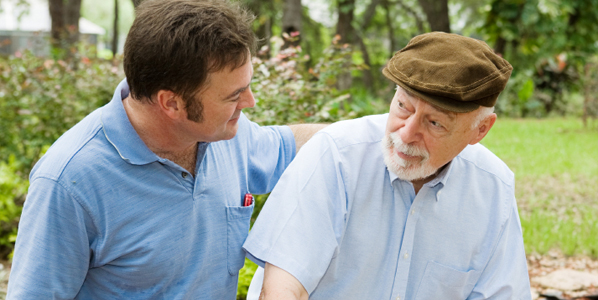Dr. Amy: Action Plan for Caregivers
While many of us have been caregivers for a while, others are just beginning the journey. Many times we are just thrown into the job without much of a chance to look at the big picture or to assess a variety of options for how to carry out the role of caregiver. The first thing to do is to develop a Caregiving Action Plan to look at how much help your loved one needs now and in the future. Of course we need to understand that these needs will change with the progress of or recovery from the illness. With recovery comes increasing strength and the need for care may decrease while others may follow a downward trend and will require more assistance as times passes. For some diseases such as cancer the journey may involve periods of remission followed by recurrence.
The first thing to do is to develop a Caregiving Action Plan to look at how much help your loved one needs now and in the future. Of course we need to understand that these needs will change with the progress of or recovery from the illness. With recovery comes increasing strength and the need for care may decrease while others may follow a downward trend and will require more assistance as times passes. For some diseases such as cancer the journey may involve periods of remission followed by recurrence.Six questions to evaluate needs:
As you create your Action Plan, ask these questions to evaluate the family caregiving needs and determine who will meet these needs:
- Can your loved one take care of most daily functions on their own such as bathing, toileting, eating, walking, and dressing?
- Can they manage their affairs such as paying bills and taking medications when needed?
- Are they able to see well? Hear? Move around comfortably?
- How much energy does your loved one have now? What are their sleep/resting needs?
- If our loved one lives alone, do they need some form of temporary assistance such as an occasional housecleaning service or gardening help?
- If your loved one lives with you, should you consider outside assistance to ease the demands?
In developing your Action Plan, consider the following:
- Short-term needs vs. ongoing needs: Look at the probable needs based on the questions above. Separate short-term and one-time needs from ongoing needs. Remember to think in terms of emotional needs as well as physical and medical needs.
- Who will manage these needs: Of these identified needs which ones can be managed by other people such as a cleaning service, respite care, adult day care, nursing aides or companion care? Which needs can be managed by other family members friends or fellow members of a faith-based organization? Which ones will you manage by yourself?
I encourage all of us to step back from time to time and reassess the situation and identify where our loved ones' needs are now and how we can manage them most effectively.
Dr. Amy
www.dramycaregiving.com


